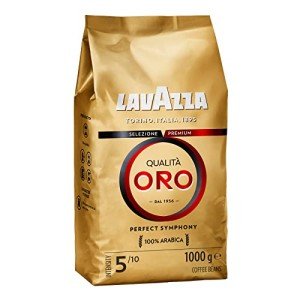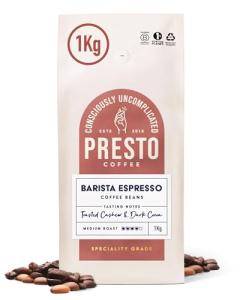Coffee is more than just a beverage; it is an experience that brings people together. For many, starting the day with a cup of strong coffee is a cherished ritual. When it comes to rich, bold flavors, Portuguese coffee holds a special place in the hearts of enthusiasts around the world. This post will explore the world of strong Portuguese coffee, focusing on whole beans and everything one needs to know to make the perfect cup.
The Rich History of Portuguese Coffee
Portugal has a long-standing coffee culture rooted in its maritime history. Coffee was introduced to the country in the 18th century. By the 19th century, Portugal had established itself as one of the leading coffee-consuming nations in Europe. Imports from Brazil, Angola, and Mozambique contributed to the robust flavors Portuguese coffee is renowned for today.
Coffee Culture Today
In contemporary Portugal, coffee is an integral part of daily life, enjoyed in cafes, restaurants, and homes. Popular preparations include espresso (also known as 'bica' in Lisbon) and 'meia de leite' (coffee with milk). The strong taste and aromatic profile are what draw locals and tourists alike to savor every cup.
Whole Beans vs. Pre-Ground Coffee
When considering coffee, one of the first decisions to make is whether to buy whole beans or pre-ground coffee. While both options have their merits, whole beans retain their freshness and flavor for longer periods. Grinding coffee just before brewing maximizes its potential, providing a more vibrant and aromatic experience.
Advantages of Whole Beans
| Advantage | Description |
|---|---|
| Flavor Retention | Whole beans maintain their flavor longer compared to pre-ground. |
| Customizable Grind Size | Allows for control over the grind, resulting in a more tailored brew. |
| Longer Shelf Life | Unopened packages can last for months without losing quality. |
| Freshness | Grinding just before brewing preserves essential oils and flavors. |
Choosing Strong Portuguese Coffee
When selecting whole beans, it is essential to consider various factors. The following table outlines key characteristics of strong Portuguese coffee to guide enthusiasts in making an informed choice.
| Characteristic | Details |
|---|---|
| Origin | Coffee beans sourced from Brazil, Angola, and Mozambique. |
| Roast Level | Dark roast is typical, providing rich, bold flavors. |
| Flavor Notes | Chocolate, nuts, and caramel undertones are common. |
| Aroma | Intense and inviting, this coffee leaves a lasting impression. |
| Caffeine Content | Generally higher caffeine content compared to lighter roasts. |
Brewing the Perfect Cup of Portuguese Coffee
Brewing strong Portuguese coffee can be achieved through various methods. Here are some recommended techniques that highlight the rich flavors of whole beans.
1. Espresso Machine
Espresso is the most beloved preparation of Portuguese coffee. Use a fine grind for the best results.
- Water Temperature: 90-95°C
- Brew Time: 25-30 seconds
- Recommended Ratio: 18g coffee to 36g water
2. French Press
This method produces a coffee with a full-bodied flavor profile.
- Coarse Grind Size: Ideal for steeping.
- Water Temperature: 94-96°C
- Steeping Time: 4 minutes
3. Pour Over
Pour-over coffee allows for exquisite control over brewing variables.
- Medium Grind Size: Recommended for optimal extraction.
- Water Temperature: 90-95°C
- Brew Time: 3-4 minutes
4. Moka Pot
Using a Moka pot is a traditional method that exemplifies the rich flavors of Portuguese coffee.
- Fine Grind: For Moka pot brewing.
- Brewing Time: 5-10 minutes
Storing Your Coffee Beans
To maintain the quality and freshness of whole beans, proper storage is paramount. The following list includes best practices for storing strong Portuguese coffee:
- Keep in a Cool, Dark Place: Light and heat can degrade the quality.
- Use an Airtight Container: Prevents air from entering and keeps the beans fresh.
- Avoid Ground Coffee: Grind your beans just before brewing for optimal freshness.
- Store Away from Strong Odors: Coffee readily absorbs flavors from its environment.
FAQs
Q: What is the best way to grind coffee beans for Portuguese coffee?
A: The grind size depends on the brewing method. For espresso, use a fine grind; for French press, a coarse grind; and for Moka pots, a medium fine grind is appropriate.
Q: How do I know if my coffee beans are fresh?
A: Check for a roast date on the packaging. Ideally, consume beans within a month or two for the best flavors.
Q: Can I make strong Portuguese coffee without a specific method?
A: Yes, while traditional methods enhance the experience, other brewing methods such as drip coffee or AeroPress can also yield delicious results.
Q: What distinguishes Portuguese coffee from other coffee?
A: Portuguese coffee is characterized by its strong flavor profile, often with notes of chocolate and nuts, and its brewing techniques, particularly espresso and Moka pot.
Q: How can I enhance the flavors of my coffee?
A: Experiment with water temperature and brewing time, and consider adding spices like cinnamon or chocolate for a unique twist.
Strong Portuguese coffee offers a window into the rich coffee culture of Portugal. With its robust flavors and aromatic appeal, whole beans are the best choice for coffee enthusiasts looking to recreate authentic Portuguese experiences at home. By choosing the right beans, employing various brewing methods, and storing them properly, one can embark on a fulfilling journey through the world of Portuguese coffee. Whether it's a leisurely Sunday morning or a quick perk-up needed during a busy workday, strong Portuguese coffee is truly a delight to savor.






